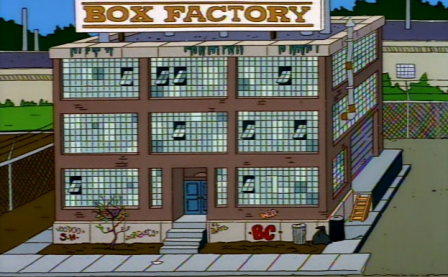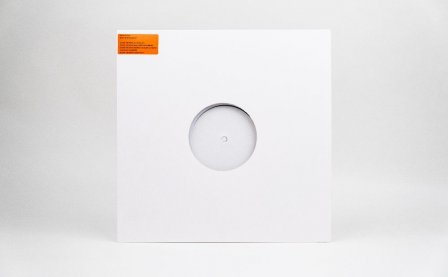“When you dance the dance of another, you make yourself in the image of its creator.”
– Madame Blanc
Although it’s a stale, “get off my lawn” sort of take (recently achieving peak snub by being mocked in a recent SNL bit), it is nonetheless worth insisting that the remake/reboot trend has gotten decidedly out of hand. Greenlight bets are so hedged now that the marketplace of ideas has been subsumed by the plain old market. That the main target demo is the Comic Con obsessive who’d be most likely to bemoan the trend is especially frustrating. When it becomes about wanting to see what a renowned auteur will do with a genre classic, as is the case here with both film and soundtrack creator, we are ignoring and negating the very possibility that these heralded progenitors might have something fresh and lasting to offer us. Of course, if the remake makes money, they might then have the resources/freedom to go forth and create that new staple. It’s nice to think that the gloriously batshit mother! might’ve been possible thanks to Bible thumper money, but Noah wan’t exactly God’s Not Dead. I’m sure those weird helper-giant creatures Noah enlisted for Ark-building had even more impressionable Christians double-checking their Book of Genesis.
Point is, it’s a legitimate gripe. At least to this media fiend. And that’s regardless of whether or not we’re supposed to move on in the face of the cutthroat circus that showbiz is and always has been. The massaged notion of the reboot as generational collaboration is reassuring — that is, until we realize it’s a sort of cashing out on the future. Rather than carrying a torch, art patronage has increasingly succumbed to stultifyingly obvious business model imperatives, even daring to call it “inclusive.” And the best these second passes can offer (though it’s decidedly rare) is improvement. In the case of IT, we’re talking God’s work. In the case of Suspiria, I fear for the deserved reverence for Argento’s singular, if imperfect, vision. Sometimes conversations around this cannibalizing of genre greats feels overeager and almost nihilistically dismissive. Hell, even if last year’s IT remake is both better and more expansive than the original TV movie, its eclipsing snuffs out an iconic (arguably superior) performance by Tim Curry as Pennywise. In this light, despite the promising trailer, one partly hopes Luca Guadagnino’s remake comes up short.
But going on this soundtrack from raffish up-and-comer Thom Yorke, it might just be something completely different. That is, it might be the best witch-themed film since 2016. Clearly it will be slicker than its namesake, for better or worse. But where Goblin’s soundtrack is all raging menace and badass prog, Yorke’s is (surprise!) mournful balladry and icy, texturally rich reverberations. Discordant horror strings may be old as Vlad, but they retain their potency here. And while this record has a lot of appeal for Radiohead fans, the more song-oriented material never feels out of place from the creepier passages. There are also subtly grooving segments that recall bandmate Jonny Greenwood’s elevating score for You Were Never Really Here. And the repeated waltz theme (“Suspirium”) has the feel of a Moon Shaped Pool track, but in its recurrence accumulates a staying power that was absent for anything on that release.
All told, Goblin’s soundtrack works better as an album. It is decidedly more singular, concise, and fun. At a staggering 25 tracks, Thom Yorke’s seems a likely candidate for digital dismemberment. As gorgeous and misstep-free as it is, the soundtrack risks a bit of that souvenir, collector’s item feel native to score-based soundtracks. That being said, it’s nowhere near as padded-out as those typically are. While melodies and tones recur, track to track, it plays out with an ear toward immersion (which advocates against streaming, wherein the transitions get butchered). Especially having not seen the film, this release comes across as an enthralling journey unto itself, ultimately dodging obligatory companion piece status. It’s solid enough that Guadagnino could only disappoint. In that sense, fans of eerie mood music and Yorke alike can’t really lose here. Two-minute songs that you’d expect to be slight present unexpected turns that make them feel epic. Only a few tracks contain movie-sourced sound, and — running against the grain of that sort of thing — the samples are not dialogue centered.
While it could be tempting to call nepotism on the maestro featuring his son’s drumming in “Has Ended” and “Volk,” his contributions are superb (especially the staggered fills on the former). It’s impressively laid in the cut, particularly given the high-stakes stoicism of the surrounding material. The proper vocal tracks (the vox for the deep dive of “A Choir of One” are just layered moaning intonations), which retain the vital quality of the best Yorke/Radiohead compositions, stick out a lot more. But they work well, like gulps of waning daylight in a vast, inky oubliette. If I had to guess, these songs are used diegetically or just in the closing credits. Much remains to be seen, but there is the auspicious sense that this was more than just a gig for Yorke. He is dancing outside of Argento, rather than of him. If Guadagnino, for his part, is doing likewise, then the Giallo legend’s masterwork of extraordinarily garish sight and sound is all the better for it. And if Suspiria is as much of a distinct entity as this soundtrack suggests, it’d be nice to see the notion of “fuckin’ shit up from the inside” of a bankrupt industry actually pan out for once.
More about: Thom Yorke




